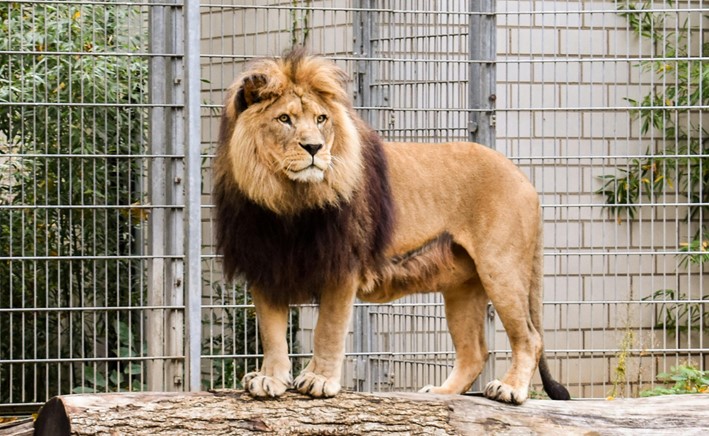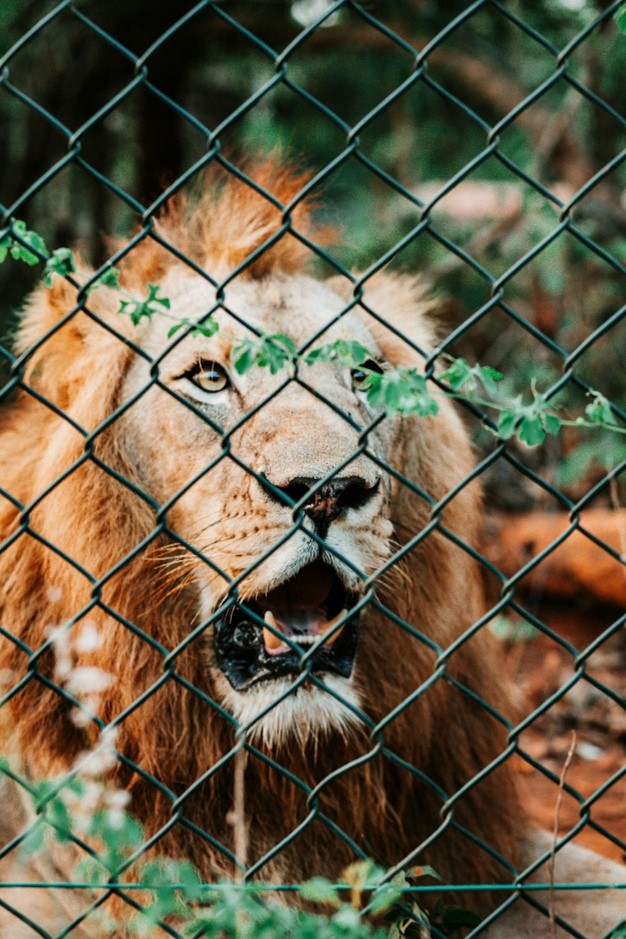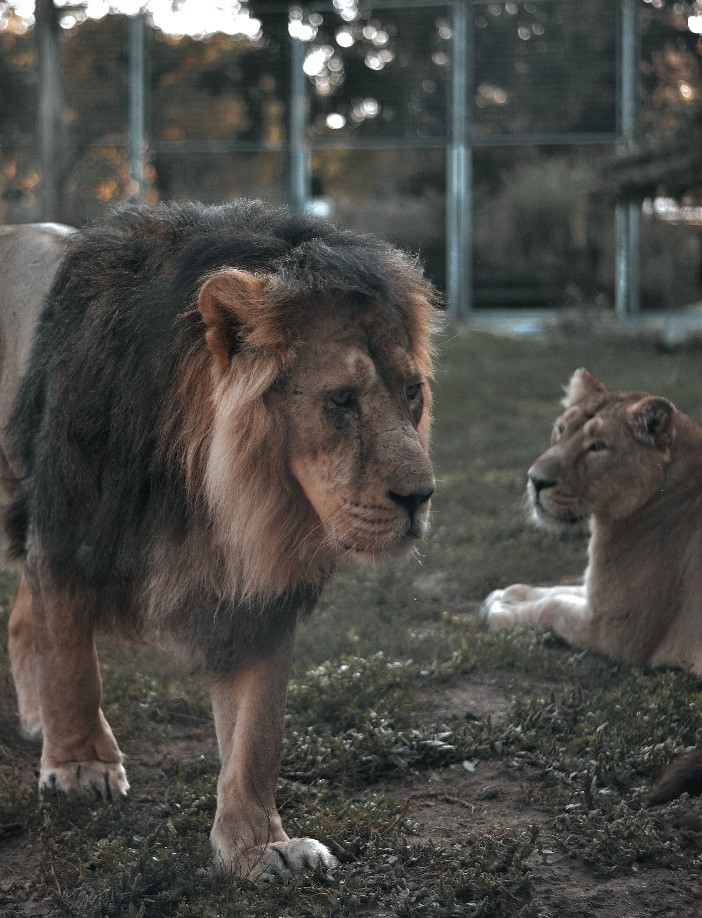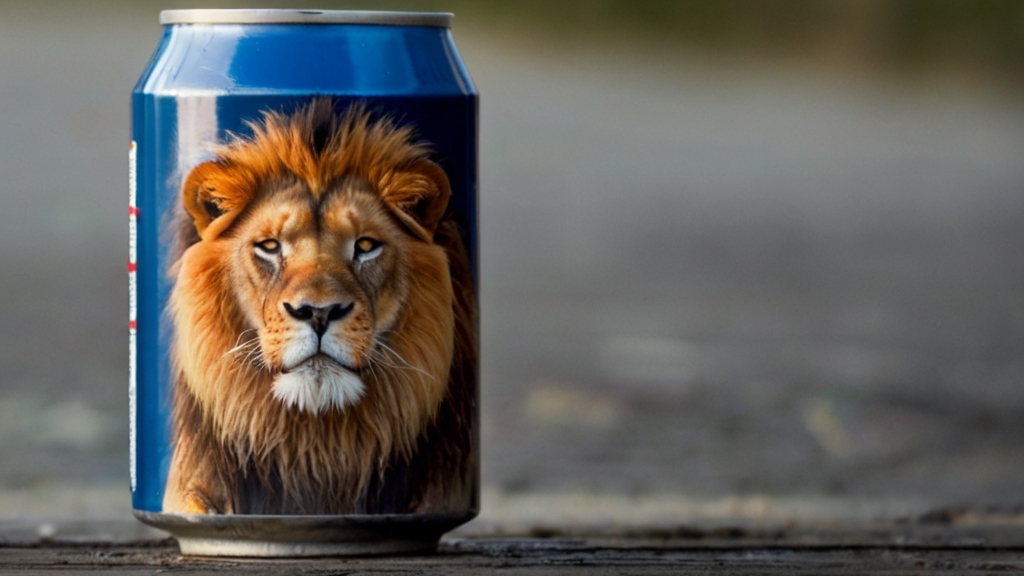What is “Canned Lion Hunting,” referencing South Africa, as Africa’s premium big game hunting destination?
Canned lion hunting, is also referred to as “vanity hunting.” Lions are bred in captivity for the sole purpose of being hunted. These lions are also called “Blood Lions” and bred for the bullet.
The hunter, when booking his African big game hunting safari, will purchase a male or female lion from a lion breeder through South African hunting outfitters. The lion of choice will then be darted and moved into a fenced area of approximately 4,000 acres to be hunted.
It is argued that, for the lion, there is no escape and no fair chase for the hunter. The animal activist groups also mention that there is no risk to the hunter, which is rather a debatable point!
The Cook report, released decades ago, first drew the attention of Animal Rights Groups and led to criminal convictions and amendments to legislation.
Lion Hunting in South Africa
Where can I hunt lions in South Africa?

What is the hunting rate for lions?
Lion hunting in South Africa is broken up into various classes of lion, ranging from one to four. A five-day game hunting safari for a class four lion (being the oldest and blackest mane) will cost US$ 12,000.
Canned Lion Hunting vs. Free Range Lion Hunting
Now, let us consider the two distinctive styles of lion hunting namely canned lion hunting and free-range lion hunting.
Canned lion hunting
The lion will be released a minimum period of 96 hours before the arrival of the hunter. The release time per province does vary, however there is no real check and balance in place to monitor this.

The hunting safari will then set off on foot until they find fresh tracks. They will then “walk down” the lion who will keep retreating until he decides enough is enough and will charge a member of the hunting group. There is a very real element of danger. These captive-bred lions are not tame and have an inherent hate of humans. In many instances, lions that are raised in captivity are mistreated by the breeders.
Free-range lion hunting
These lions are baited over large areas. When the bait has been hit, the professional hunter will build a temporary blind and the hunting safari will wait for the lion to arrive. The lion, if of an acceptable age and size, will be “ambush” hunted. In most instances, the lion will not be aware of the presence of the hunter.
In certain instances, once a lion has hit a bait, the tracks will be followed on foot.
So, which of the above methods would provide the most risk to the hunter?
We will leave the reader to decide. Just like in any industry, whether focused on game hunting or not, rules are always manipulated to suit the pocket of those in the position of gain.
There have been numerous instances where investigations have found breeders to be negligent, cutting costs and treating animals inhumanely. Knowing this, we can then also accept that certain outfitters would allow hunters to hunt lions while the animal is still sedated. When it comes to people, very rarely do they cease to amaze one.
I have personally visited breeding ranches where parameters, as laid out by Nature Conservation, have been met and specifications complied with. While big game hunting in Africa, I have also unfortunately had the misfortune of stumbling across locations where conditions are shocking and against every single animal right possible. How some of the “lion farmers” sleep at night is also a question I ponder. I think there is a special place in hell for some.
The conditions of breeding camps will always depend on cash flow and the approach towards the humane treatment of animals in captivity by lion breeders.
What caliber is used for lion hunting?
A minimum of a .375 with a 300-grain bullet is legally allowed for lion hunting in South Africa.
Hunting Lion in South Africa: The Export Trade
From the East, there is a huge demand for lion carcasses, specifically in Asia. Hunting lions in South Africa not only generates revenue and demand from the game hunting industry but also the stripping and processing of the carcass in abattoirs.
The price of the African big game safaris is reduced if the hunter does not export the trophy.
Farmed lions that do not meet the hunters’ criteria, along with the bones, teeth, claws, and other body parts left by the hunters are processed into what some refer to as “tiger bone cake” and exported to the Asian market. The Asian market, like with rhino horn, believes the bones to have mystical, healing, and aphrodisiac qualities.
South Africa’s Landmark Decision
- Lion hunting in South Africa will soon be ending, well at least when we refer to farmed and captive-bred lions.
- The South African government has made the call to end captive-bred lion hunting and this decision has been met with applause from international conservationists.
- This decision plans to phase out lion breeding, boost conservation efforts, and foster eco-tourism.

The End of Canned Lion Hunting in South Africa and the Impact on African Hunts
- While the decision has been made and publicized by the government, the wheels of policy churn slowly in South Africa.
- Lion hunting permits are still being issued.
- The costs for a game hunting safari in South Africa to hunt the African lion, a member of the Big Five, will exponentially increase as only the hunting of “wild” lions will be allowed.
- A lion hunting safari’s projected cost will exceed US$ 60,000 for a 14-21-day hunting adventure.
- If an affordable lion hunting safari on foot in South Africa is your dream, the time to book your hunting safari is now. Time is limited and the window of opportunity is quickly closing.
- The United States and Australia have already banned the import of canned lion hunting trophies.
- Safari Club International, which is the world’s largest hunting club, will no longer allow hunting outfitters in South Africa to advertise or promote any canned lion hunting packages at any of its annual conventions and shows. No captive-bred lion trophy will be allowed to enter the SCI record books.
Lion Hunting Remains an Emotional Topic
Lion hunting in South Africa is an emotional matter and pulls at the “heartstrings” of people and conservations. In my opinion, a captive-bred lion is no different from any other captive-bred antelope. The same applies to animals bred in captivity for commercial use, from chickens, sheep, and goats to cattle and ostriches.
Breeding of plains game for game hunting safaris takes place all over South Africa, Namibia, and Texas, to name a few.
However, like with any of God’s creatures whereby mankind is entrusted with their well-being, they need to be treated humanely and with a certain amount of “animal dignity.”
Fair chase applies not only to lion hunting in South Africa but to all African big game hunting safaris.

